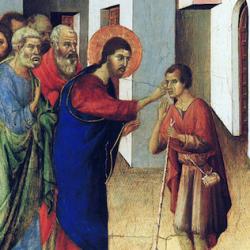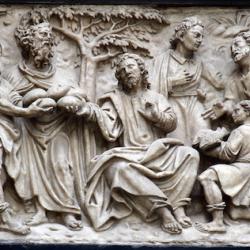Graham Twelftree ( In the Name of Jesus: Exorcism among Early Christians ) argues that there is not political dimension to the gospel story of Jesus and the Legion demoniac. Contrary to much contemporary scholarship, “legio” did not necessarily conjure up the image of Caesar’s army; the word could be used figuratively to mean simply a “great number” (as, Twelftree suggests, in Matthew 26:53). He also argues that the geographic setting, apparently Gentile, militates against the story as a parable of Jewish liberation.
There are several problems with these arguments. First, at least in Matthew “legion of angels” does have a military connotation. Yahweh is the Lord of “armies” or hosts, and those hosts are His angels. Second, it’s not only the word but the subsequent story that shows that the gospel writers have a military setting in mind. The pigs possessed by Legion drown in the sea, like Pharaoh and his “legions.” Third, the Gentile setting seems as much to support a political reading of the story as to undermine it. Finally, Twelftree’s understanding of “political” is overly narrow.
I agree with Twelftree’s ultimate conclusion that Jesus’ battle is with Satan more than Rome, but that doesn’t necessitate deleting the political echoes of the story.











